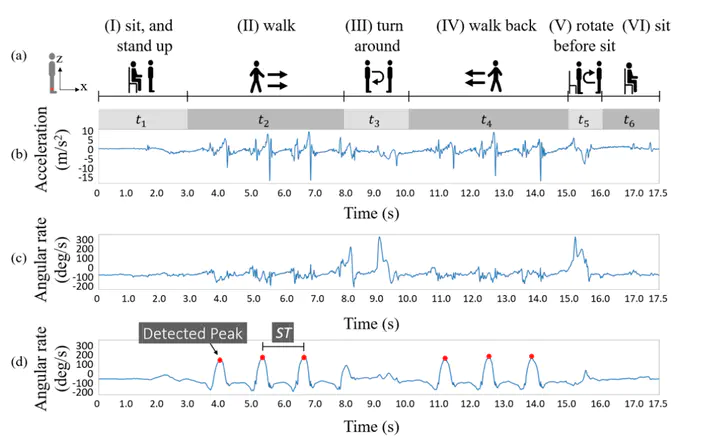Prescreening MCI and Dementia Using Shank Mounted IMU During TUG task

Abstract
Detection of mild cognitive impairment (MCI) and dementia (DEM) is an important topic because, unless it is treated early, MCI can progress to DEM, which is an untreatable disease. This paper proposes a timed-up-and-go (TUG) task features analysis and classification of MCI and DEM using inertial measurement units (IMU) in wearable devices. Our goal is to create a generalized model that can be used for pre-clinical screening. As a result, rather than classifying only one subtype of dementia, such as Alzheimer’s disease (AD) or Parkinson’s disease (PD), we classify all subtypes as DEM. We also utilize feature selection methods on features from TUG tasks to optimize the MCI and DEM classification performance. From the results, our generalized model can outperform other works in NC-MCI&DEM classification with accuracy of 86.94% and sensitivity of 97.40%. For NC-DEM classification, the performance of our generalized model is slightly lower than that of specific-subtype models (e.g., NC vs. AD). However, our generalized model can outperform the specific-subtype models when using with a diverse variety of subtypes. It is a reasonable trade-off, and it can be a good first step toward a future where the patient can pre-clinically self-screening the cognitive impairments using wearable devices in free-living environments. This could allow patients to notice the cognitive impairment early on and seek a comprehensive diagnosis from a doctor.